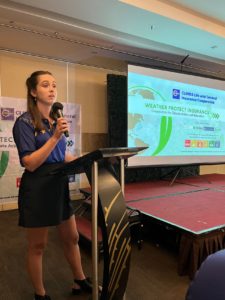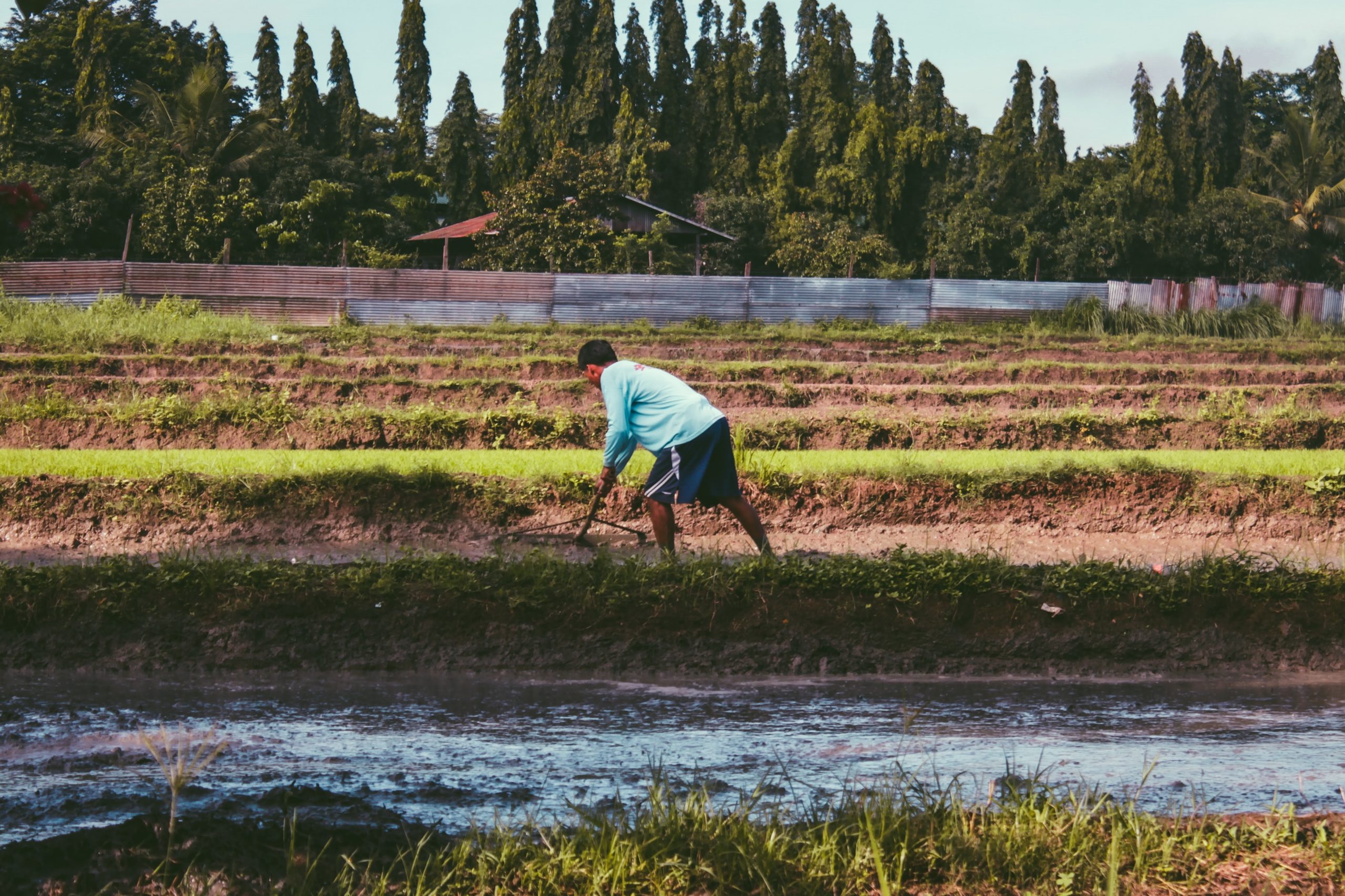Read Global Parametrics’ Impact and ESG Manager, Wendy Smith, sharing her reflections on the success and opportunity promised by one of our most impactful and exciting programmes – the CLIMBS Weather Protect Insurance product.
In August, I visited the Philippines to meet with our in-country partner, CLIMBS Life and General Insurance Cooperative, to join them on two of their product roadshows in Davao City and Cebu City. It was a chance to share with CLIMBS’ customer cooperatives the value of our Weather Protect Insurance product and the ways it could benefit their farmer members and communities. Farmers in the Philippines have limited capacity to protect themselves against extreme weather events, due to precarious incomes from variable yields. Indeed, financial institutions can perceive the agricultural sector to be too risky, restricting farmers to access to credit. The CLIMBS Weather Protect Insurance programme provides is an effective alternative which protects the Philippines’ agricultural sector against the increased risk of climate change related events.
This year, the roadshows were a space to share evidence of the success of the Weather Protect Insurance product in its initial pilot. In 2021, the pilot, funded by our Technical Assistance Facility with capacity from the NDF partnership, provided protection against the increased risks posed by heavy rainfall events for 14 cooperatives across 15 provinces protecting 3,600 farmers. The product triggered three times in the year, following Typhoons Rai and Megi/Agaton, resulting in pay-outs for 8 of the 14 cooperatives, across six affected provinces.


However, the 2021 pilot did more than demonstrate the success of the product. Following learning events, in collaboration with farmers and cooperative members, consortium partners, including GP, CLIMBS and IBISA Network and CIAT, identified how the product could be improved to provide the best protection. The 2022 product incorporates those upgrades and offers cooperatives across CLIMBS’ network with a purposefully developed mechanism for disaster risk financing. Primarily, a wind-speed index was added alongside excessive rainfall, to reflect the reality of disruption faced by farmers during these extreme weather events. It also includes an upgrade of the online policy monitoring platform system, developed by IBISA, to include mobile compatibility for greater accessibility, as well as ensuring the agro-advisory learning modules developed and provided by CIAT address farmers most pressing concerns for climate change adaptation.
Once I had left the Philippines, the reality of the risk facing people across the Philippines became even clearer as Tropical Cyclone Noru made landfall on 24th September. This tropical cyclone, documented as one of the fastest rapid intensifications ever recorded in the Pacific Basin, caused widespread devastation for communities and businesses. The Philippines is recognised as one of the most vulnerable countries to climate change in the world. Tropical cyclones are a key risk, with the country already experiencing up to 20 per year – a figure set to increase both in quantity and intensity due to the rapidly changing climate. This will present challenges for those whose livelihoods and assets are so closely tied to weather that is increasingly becoming more unpredictable and destructive.
The new, and improved, Weather Protect Insurance product has now been developed and scaled to cover 105 cooperatives, representing 100,000 farmers across 42 provinces. It is evidence of the demand and need for innovative disaster financing solutions in climate vulnerable countries, especially targeting those communities and sectors that represent low-income groups where the need to build resilience for sustainable development is paramount.

By Wendy Smith


